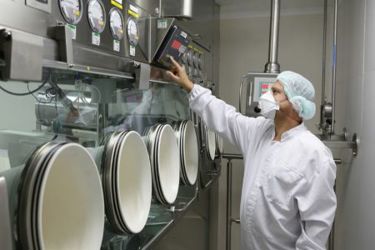The Crucial Role Of Cleaning In Effective VPHP Decontamination For Isolators

Aseptic processing isolators are critical for contamination control, with vapor phase hydrogen peroxide (VPHP) decontamination cycles playing a key role in ensuring sterility. However, the success of VPHP relies on thorough cleaning. Residue, particulates, or soil on isolator surfaces can block VPHP’s biocidal action, compromising decontamination.
Isolators present unique cleaning challenges due to their tight spaces, specialized materials, and the need to address subvisible particulates that standard visual checks may miss. To overcome these challenges, manufacturers must prioritize particulate removal, employ non-shedding, chemically resistant cleaning tools, and adopt proper techniques, such as single-pass, overlapping strokes. Tools should also be tailored to the isolator's layout, ensuring even hard-to-reach areas are effectively cleaned.
Poor cleaning can lead to blocked surfaces, reduced VPHP efficiency, and compromised decontamination cycles, resulting in potential contamination hotspots and regulatory issues. Proper cleaning ensures uniform VPHP distribution, repeatable cycle success, reduced downtime, and enhanced regulatory compliance.
To achieve cleaning excellence, manufacturers should understand isolator layouts, collaborate with specialized vendors, train operators regularly, and validate cleaning procedures using techniques like total organic carbon (TOC) or ATP swabbing.
Cleaning is more than a precursor to VPHP—it is the foundation of effective decontamination. By prioritizing proper cleaning practices, manufacturers can optimize isolator performance, ensure consistent sterility, and produce safe products, meeting stringent regulatory standards.
This article is based on Joe McCall’s webinar, “Contamination Control in Automated Environments,” presented at the Cleanovators Virtual Summit on October 23, 2024.
Get unlimited access to:
Enter your credentials below to log in. Not yet a member of Pharmaceutical Online? Subscribe today.
